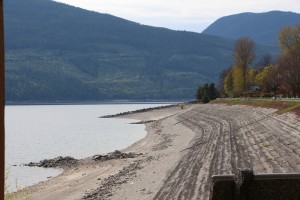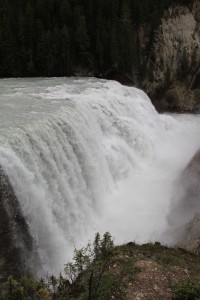The prompt this week was “Your task is to take the story about how evil comes into the world, from King’s text, and change it to tell it. First, learn the story by heart, and then tell the story to your friends and family. When you are finished, post a blog with your version of the story and some commentary on what you discovered. If you want, you can post a video of you telling the story, in place of text. ”
After looking at this it took me a long time to decided on an idea that would be something that I could write on and be something that could be connected to The Truth About Stories. But here it goes:
Once upon a time in a world before light and evil there was a group of people living on a small island. T his group of people were the only ones known to this world, besides the animals of course. They were created to take care of the place that they lived in and not cause harm to anyone or anything. Inevitably, not all rules are followed.
his group of people were the only ones known to this world, besides the animals of course. They were created to take care of the place that they lived in and not cause harm to anyone or anything. Inevitably, not all rules are followed.
One day a boy named Killian and a girl named Emma were caring to the land, as they do every day. These actions are nothing new to either of them, and they were getting bored. They wanted to go on an adventure together in the woods. Killian andEmma had been warned what would happen if they didn’t do their jobs and ran off. They were told that something would happen that neither of them liked. Nothing like that every happened in this place, though. There was no unpleasantness or unhappy feelings; nobody had ever experienced these feelings in their lives. Nobody knew what it was like to be unhappy or experience something unpleasant.
As noon neared the next day, the duo decided to go into the woods. They wanted an adventure and didn’t want to wait anymore. The deeper they ventured into the woods, the more mysterious the area became. There were noises they had never heard before, and plants they didn’t know existed. Everything was completely overwhelming to the both of them. They wanted to learn more. Emma and Killian explored even deeper into the woods until the woods was all they could see. They decided that they never wanted to go back to the life they were living before. Once this decision was made they were changing the purpose of why they were on this planet. They no longer wanted to care for the planet, and instead wanted to simply live off of it in the forest. This went against everything they were created for, and there was a price for that.
As they traveled deeper into the woods, Emma and Killian got to what seemed like a clearing with a large fast running river in the middle. Emma and Killian wanted to get to the other side of the river, as they thought if they got that far no one would be willing to follow them to the other side. The travel over the river was treacherous, and it consisted of walking along a rock ridge that was covered in slime. They knew it would be a risk, but felt that this new life could not happen unless they were across the river. Emma went first and Killian went after her. As they were crossing, Emma wasn’t having any issues, as she was small and could get across easier. Killian was having more of an issue, he was lankier in stature and wasn’t able to control all of his body. While trying to cross he stumbled on a rock and fell into the fast moving river and was carried downstream.
By the time that Emma found Killian he was washed up on shore and no longer breathing. This was the first time anyone in this land had experienced death, especially one as tragic as this. As Emma cried over the loss of her dear friend, the body let out a both a bright white light and a dark cloud. The bright light was looked at as his soul leaving and travelling to a better place. However, the darkness lingered. This was the first darkness created in this world; it was born through tragedy and loss. From this point on, everyone’s lives involved some amount of darkness, regardless of where they went or did. The darkness from Killian’s body wafted through the village like smoke from a fire, leaving a thin layer of darkness everywhere.
Because..once a story is told it can never be taken back.
Thoughts:
After I memorized this and read it to my boyfriend he just kinda stared at me. His first comment was, “why would you give this false hope of them being happy if he is just going to die at the end?” He liked the way that you weren’t expecting how the darkness was going to take over on the unsuspecting place that they are living. No one else except Emma knows what happened to bring the darkness to the town.
Work Cited
Cardoso, Kathryn. My Personal Photos. Accessed May 29, 2015.
King, Thomas. The Truth About Stories: A Native Narrative. Toronto: House of Anansi Press, 2003. Print.

